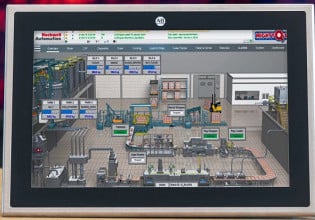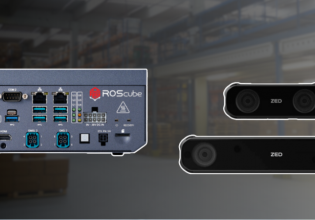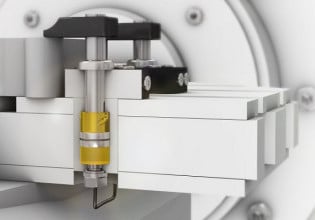A
Alex Pavloff
> ------------ Forwarded Message ------------
> From: tecnog
> To: [email protected]
> Subject: Re: PLCS: Need to Setup a PLC Lab
>
> If the lab is to be setup "for academical purposes", as
> stated by Mariano, I would suggest the evaluation of softPLCs, better if
under
> GNU license and Linux operating system. There's nothing cheaper.
I do not know of any such beast that works and is in any sort of production
format. If the topic of the class is "writing softplcs", then sure, go get
MAT actually working with a ladder editor. Otherwise, go and actually buy a
PLC. I think what students want to learn -- how to program ladder logic --
can be taught very effectively using small AB Micrologix or Automation
Direct 05s or what have you.
> 1. in automation world , micro-PLCs are mostly used only
> by a small part of integrators and mainly for a specific family of
> applications (e.g. packaging). Many of them do not allow online
programming and
> have reduced fieldbus/networking/communication capabilities. Mastering one
> of these PLCs will not ensure one will be able to program other PLCs in a
> reasonably short time.
Mastering any one family of PLC and its specific software, even the
compilcated ones, doesn't mean that it will be easier to learn another PLC.
> 2. PLC software simulators often do not provide a complete
instruction
> set and proper CPU behaviour. The editors are not the same you will use in
> the real world, so they're still useful for "academical purposes" but not
> for real training. The only simulators worth some money are those
> developed by main PLC brands themselves (e.g. Siemens, etc),
> where you use exactly the same tools (editor, Xreference,hardware
> configurator) and the identical instruction set you would use in the real
world.
So don't buy simulators. Buy small PLCs from the company that gives you the
best deal.
Alex Pavloff -- [email protected]
Eason Technology --- www.eason.com
--- Linux-based industrial HMI ---
-------- www.eason.com/5k --------
> From: tecnog
> To: [email protected]
> Subject: Re: PLCS: Need to Setup a PLC Lab
>
> If the lab is to be setup "for academical purposes", as
> stated by Mariano, I would suggest the evaluation of softPLCs, better if
under
> GNU license and Linux operating system. There's nothing cheaper.
I do not know of any such beast that works and is in any sort of production
format. If the topic of the class is "writing softplcs", then sure, go get
MAT actually working with a ladder editor. Otherwise, go and actually buy a
PLC. I think what students want to learn -- how to program ladder logic --
can be taught very effectively using small AB Micrologix or Automation
Direct 05s or what have you.
> 1. in automation world , micro-PLCs are mostly used only
> by a small part of integrators and mainly for a specific family of
> applications (e.g. packaging). Many of them do not allow online
programming and
> have reduced fieldbus/networking/communication capabilities. Mastering one
> of these PLCs will not ensure one will be able to program other PLCs in a
> reasonably short time.
Mastering any one family of PLC and its specific software, even the
compilcated ones, doesn't mean that it will be easier to learn another PLC.
> 2. PLC software simulators often do not provide a complete
instruction
> set and proper CPU behaviour. The editors are not the same you will use in
> the real world, so they're still useful for "academical purposes" but not
> for real training. The only simulators worth some money are those
> developed by main PLC brands themselves (e.g. Siemens, etc),
> where you use exactly the same tools (editor, Xreference,hardware
> configurator) and the identical instruction set you would use in the real
world.
So don't buy simulators. Buy small PLCs from the company that gives you the
best deal.
Alex Pavloff -- [email protected]
Eason Technology --- www.eason.com
--- Linux-based industrial HMI ---
-------- www.eason.com/5k --------






